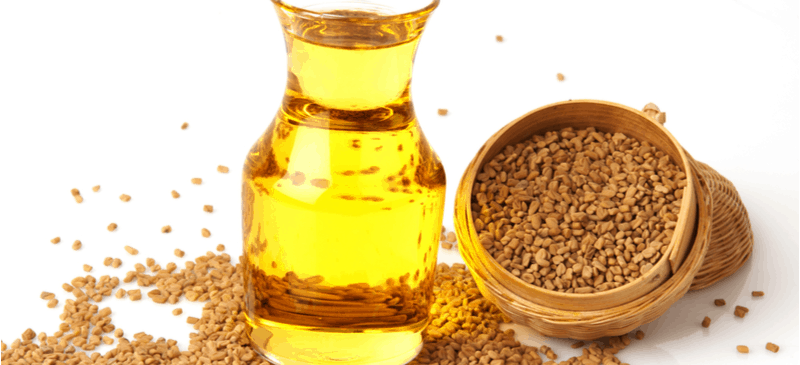This Dr. Axe content is medically reviewed or fact checked to ensure factually accurate information.
With strict editorial sourcing guidelines, we only link to academic research institutions, reputable media sites and, when research is available, medically peer-reviewed studies. Note that the numbers in parentheses (1, 2, etc.) are clickable links to these studies.
The information in our articles is NOT intended to replace a one-on-one relationship with a qualified health care professional and is not intended as medical advice.
This article is based on scientific evidence, written by experts and fact checked by our trained editorial staff. Note that the numbers in parentheses (1, 2, etc.) are clickable links to medically peer-reviewed studies.
Our team includes licensed nutritionists and dietitians, certified health education specialists, as well as certified strength and conditioning specialists, personal trainers and corrective exercise specialists. Our team aims to be not only thorough with its research, but also objective and unbiased.
The information in our articles is NOT intended to replace a one-on-one relationship with a qualified health care professional and is not intended as medical advice.
Fenugreek Oil Benefits for Hair, Digestion, Inflammation & More
November 19, 2020

Fenugreek is considered one of the oldest known medicinal plants in human history. Fenugreek oil comes from the seeds of the plant and is used for a variety of health concerns, including digestive problems, inflammatory conditions and low libido.
It’s well-known for its ability to enhance exercise performance, stimulate breast milk production and fight acne. With a unique warm and woody aroma, diffusing fenugreek at home or adding it to tea can be a great addition to your natural medicine cabinet.
What Is Fenugreek Oil?
Fenugreek is an annual herb that’s part of the pea family (Fabaceae). It’s also known as Greek hay (Trigonella foenum-graecum) and bird’s foot.
The herb has light green leaves and small white flowers. It’s widely cultivated in northern Africa, Europe, West and South Asia, North America, Argentina, and Australia.
Seeds from the plant are consumed for their therapeutic properties. They are used for their impressive essential amino acid content, featuring leucine and lysine.
The herb’s essential oils are extracted from the seeds, usually with the supercritical CO2 extraction process. This is the preferred method of extraction because it’s considered nontoxic and leaves zero residual organic solvent.
Benefits
The benefits of fenugreek essential oil come from the herb’s anti-inflammatory, antioxidant and stimulating effects. Here’s a breakdown of studied and proven fenugreek oil benefits:
1. Aids Digestion
Fenugreek oil has anti-inflammatory properties that help improve digestion. This is why fenugreek is often incorporated in dietary plans for ulcerative colitis treatments.
Studies also report that fenugreek helps support healthy microbial balance and may work to improve gut health.
2. Enhances Physical Endurance and Libido
Research published in the Journal of the International Society of Sports Nutrition suggests that fenugreek extracts have a significant impact on both upper- and lower-body strength and body composition among resistance-trained men compared to a placebo.
Fenugreek has also been shown to increase sexual arousal and testosterone levels among men. Research concludes that it has a positive effect on male libido, energy and stamina.
3. May Improve Diabetes
There’s some evidence that using fenugreek oil internally may help improve diabetes symptoms. An animal study published in Lipids in Health and Disease found that a formulation of fenugreek essential oil and omega-3s was able to improve starch and glucose tolerance in diabetic rats.
The combination also significantly decreased the glucose, triglyceride, total cholesterol and LDL cholesterol rates, while increasing HDL cholesterol, which helped the diabetic rats maintain homeostasis of blood lipid.
4. Enhances Breast Milk Supply
Fenugreek is the most widely used herbal galactagogue to enhance a women’s breast milk supply. Studies indicate that the herb is able to stimulate the breast to supply an increasing amount of milk, or it may stimulate sweat production, which increases milk supply.
It’s important to add that studies do note the potential side effects of using fenugreek for breast milk production, including excessive sweating, diarrhea and worsening of asthma symptoms.
5. Fights Acne and Promotes Skin Health
Fenugreek oil works as an antioxidant, so it helps fight acne and is even used on the skin to support wound healing. The oil also has powerful anti-inflammatory compounds that can soothe the skin and relieve breakouts or skin irritations.
The anti-inflammatory effects of fenugreek oil also help improve skin conditions and infections, including eczema, wounds and dandruff. Research even shows that applying it topically can help reduce swelling and external inflammation.
6. Works as an Expectorant
Fenugreek is known to work as an expectorant that helps relieve congestion by expelling phlegm. In fact, in Traditional Chinese Medicine, the herb is known as a “phlegm mover” that breaks up stuck energies and has a cooling anti-inflammatory effect.
One study found that fenugreek syrup and honey helped improve quality of life and lung function among participants with mild asthma.
Diffusing the oil can help relieve a cough and ease that stuffy feeling you get when dealing with respiratory infections.
7. May Suppress Appetite
A study published in Clinical Nutrition Research found that drinking fenugreek tea and fennel tea were both significantly effective in suppressing appetite among overweight women in South Korea.
Researchers found that fenugreek tea decreased hunger, led to less food consumption and increased feelings of fullness compared to the placebo.
Popular Uses
Fenugreek oil can be used aromatically, topically and internally. It has a warm, woody aroma and blends well with sandalwood, chamomile and other soothing essential oils.
- Skin Soother: You can use fenugreek essential oil on the skin to soothe inflammatory issues. It makes for an excellent addition to a massage oil, too, as it can calm the skin and help ease pain and swelling.
- Digestive Aid: Add one to two drops of fenugreek to tea, water or recipes to help ease digestive issues like constipation.
- Enhance Exercise Performance: Add one to two drops of fenugreek to tea or warm water to help enhance exercise performance and stamina, or dilute five drops at home.
- Breast Milk Production: Add one to two drops of fenugreek oil to tea or warm water to stimulate breast milk production, after getting the OK from your health care professional.
- Hair Health and Shine: Combine one to two drops of fenugreek oil with a half teaspoon of coconut oil and massage the mixture into your scalp to reduce dandruff and boost moisture. Rinse it out after about five minutes.
- Food Flavorer: Add a few drops of fenugreek to dishes that call for other warming herbs, like turmeric or ginger.
- Ease Tension: Diffuse five drops of fenugreek oil at home, or inhale it directly from the bottle.
Unproven Remedies
Although there is research, particularly studies done on animals, suggesting that fenugreek seeds and extracts have anti-inflammatory effects, the extent of these benefits hasn’t been entirely proven in human studies. Some unproven fenugreek remedies include its ability to improve or fight health issues including:
- gout
- leg ulcers
- mouth ulcers
- sciatica
- boils
- bronchitis
- swelling in lymph nodes
- chronic cough
- hair loss
- low testosterone
- kidney ailments
- cancer
Risks and Side Effects
There are some precautions to be aware of before using fenugreek topically or internally. When ingesting the oil, it may cause side effects such as bloating, gas or diarrhea.
Signs of a fenugreek allergy include swelling, coughing and wheezing. If you experience any of these adverse reactions, discontinue use immediately.
It’s recommended to perform a small patch test before using fenugreek oil on larger areas of skin. If you experience skin irritations or redness after using it topically, discontinue use.
Do not use fenugreek if you are on blood thinners or have a health condition that thins your blood. It may lead to excessive bleeding or bruising easily.
Final Thoughts
- Fenugreek oil comes from the seeds of the therapeutic herb that’s been used for thousands of years in traditional medicine.
- The oil can be diffused, ingested in tea or recipes, or applied topically.
- It works as a potent anti-inflammatory agent, antioxidant and digestive aid. It may also help to improve physical endurance and stamina.








